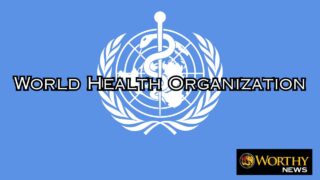
by Stefan J. Bos, Worthy News Chief International Correspondent
NEW YORK (Worthy News) – The World Health Organization (WHO) has introduced new global health regulations that critics warn will lead to more global surveillance.
The recent amendments to the WHO’s International Health Regulations (IHR) come as world leaders gather in New York City for the annual United Nations General Assembly, marking its 80th anniversary.
Yet the new regulations by the WHO, the U.N.’s leading health agency, added to concerns in a world where wars rage, a U.N. budget crisis looms, and questions abound about whether the United Nations is even relevant anymore.
The adjusted IHR has created a new “pandemic emergency” category and expanded obligations for global cooperation when disease threats escalate. According to the WHO, the measures ensure faster global alerts, stronger international collaboration, and more equitable access to vaccines and treatments when outbreaks threaten to spiral beyond borders.
The WHO defended the amendments, saying they reflect lessons from the COVID-19 pandemic. The organization argued that coordinated global action is critical in an interconnected world where “infectious diseases and other public health risks do not respect borders.”
CRITICS VOICE ALARM
However, some critics see the new powers as a potential threat to national sovereignty.
U.S. Health and Human Services Secretary Robert F. Kennedy Jr. and Secretary of State Marco Rubio announced in July that Washington rejected the amendments, warning that the measures were vague and could pressure nations to align with WHO directives.
The New American, a right-wing U.S. magazine published by the John Birch Society, went further, suggesting the U.N. and its agencies seek to use health crises to expand global control.
The magazine argued that the new IHR provisions could lead to “more censorship and surveillance” while purporting to protect public health.
Supporters counter that stronger international rules are necessary to improve preparedness for future health emergencies. They note that the new provisions also encourage better disease monitoring, investments in data systems, and cooperation between governments, civil society, and the private sector to reduce deaths from non-communicable diseases, hypertension, and mental illness.
ORDERING WITHDRAWAL
U.S. President Donald J. Trump has also ordered the United States to withdraw from the WHO, citing its handling of COVID-19 and alleged undue Chinese influence. However, under WHO rules, the withdrawal requires a 12-month notice period, meaning the U.S. will technically remain a member until early 2026 unless the order is reversed.
The health debate comes as the United Nations itself is under growing scrutiny. The United States is responsible for about 22 percent of the U.N.’s regular budget and some 26–27 percent of peacekeeping assessments.
As part of a looming shortfall, the U.N.’s regular budget is set to be cut by roughly 15 percent next year, from $3.7 billion to about $3.2 billion — a change expected to eliminate nearly 3,000 staff posts.
As the global body faces financial strain, internal divisions, and declining U.S. support, its 80th anniversary is marked not by celebration but by questions over whether it can still deliver on its founding promise “to save succeeding generations from the scourge of war.”
And while armed conflicts continue in Europe, the Middle East, and Africa, and as the U.N. slashes its budget and workforce, critics warn the new WHO rules could further erode confidence in multilateral institutions already struggling for relevance.
Copyright 1999-2026 Worthy News. This article was originally published on Worthy News and was reproduced with permission.
Latest News from Worthy News
A Protestant pastor held in incommunicado detention for almost six months in Nicaragua has been released, Christians confirmed Thursday.
U.S. forces have seized another sanctioned oil tanker in the Caribbean Sea, underscoring the Trump administration’s tightening grip on Venezuela’s oil sector as opposition leader Maria Corina Machado prepares to meet President Donald Trump.
Iran abruptly shut down its airspace to commercial traffic early Thursday and the United States began repositioning military forces and personnel across the Middle East as President Donald Trump weighs potential action against Tehran amid a deadly crackdown on nationwide protests, escalating threats to U.S. bases, mass evacuation warnings, and growing signs that Washington and its allies are preparing for a possible regional confrontation.
President Donald Trump warned Thursday that he is prepared to invoke the Insurrection Act if Minnesota’s Democratic leadership fails to halt escalating violence against federal law-enforcement officers amid ongoing Immigration and Customs Enforcement operations in the state.
The United States will indefinitely suspend immigrant visa processing for applicants from 75 countries beginning January 21, the U.S. Department of State announced Wednesday, marking a significant expansion of the Trump administration’s immigration restrictions.
China is reassessing its strategy in Latin America following the U.S.-led removal of Venezuelan leader Nicolás Maduro, a move that abruptly dismantled Beijing’s most important foothold in what it increasingly views as Washington’s backyard, according to an exclusive report by The Wall Street Journal.
U.S. Secretary of War Pete Hegseth vowed Monday to dismantle Pentagon bureaucracy slowing artificial intelligence development, unveiling a sweeping push to deliver AI capabilities to U.S. warfighters at speed during a speech at SpaceX’s Starbase launch site in Texas.







